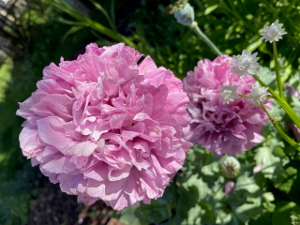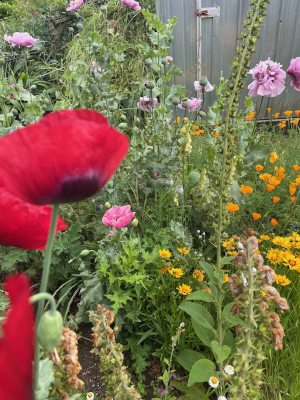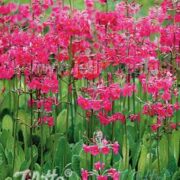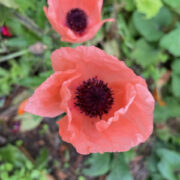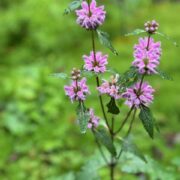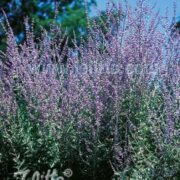Description
This is a mixture of all of the wonderful, old fashioned poppies which would have been grown in old cottage and monastery gardens many hundreds of years ago, and indeed were often grown in our grandmothers gardens as well, not so long ago . You will get doubles and a small percentage of singles in pinks , purples, mauves like the one in the picture , burgundy, reds to dark red Black and whites and many colours in between. It is an easily grown plant and one that you really can’t go past if you have memories of a garden long ago where there were many abundant flowers, and amongst them , bloomed these lovely ephemeral beauties.
Sowing advice
Sow seeds in early spring or autumn
Sow directly where they are to grow or grow in pots or trays
Direct :Scatter the seed sparingly onto prepared garden soil. Ensure you provide some anti slug and snail trapping as these nuisances love poppies
In pots or trays ( This is our preferred method) :sow onto moist seed raising mix ( best bought from your local garden centre as it is generally sterilised to prevent fungus diseases)
Both methods: Do not cover the seed. Poppy seeds need light for germination . Keep the soil moist but not soggy until the seeds are well on their way. 15 deg C is an ideal temp.
Transplant the pot grown seedling carefully (if grown in pots/trays ) as their roots do not like to be disturbed. Do this as soon as they can be handled ie have 2 true leaves. They prefer cool conditions, so plant them out when temps are between 15 and 18 deg C with snail and slug measures.
For direct sown seeds: Once the seedlings are 3cm tall thin them to stand 18 cm apart as they need space to grow well.
Additional information
| Classification | Annual |
|---|---|
| Common Name | Poppy |
| Family | Papaveraceae |
| Maximum Height | Approx 100 cm with flowers |
| Number of seeds in packet | approx 50 |

